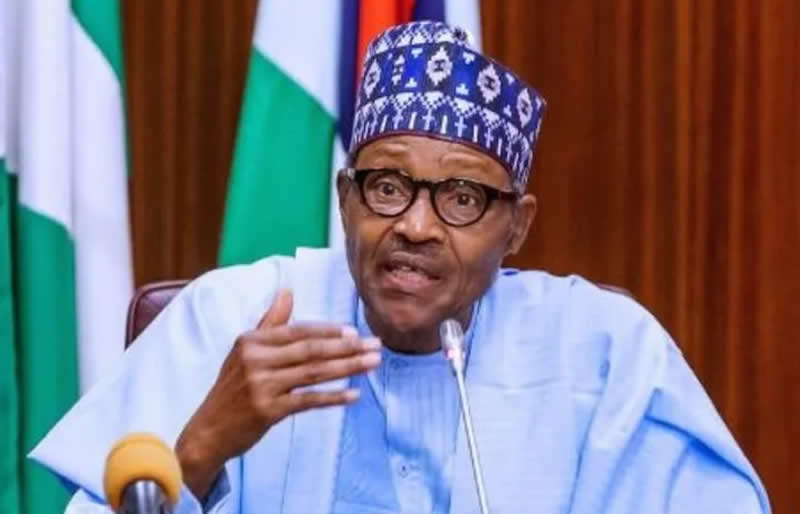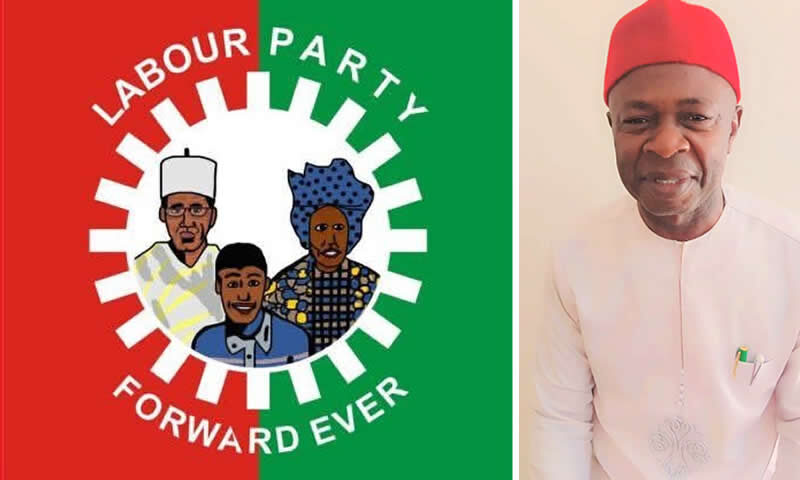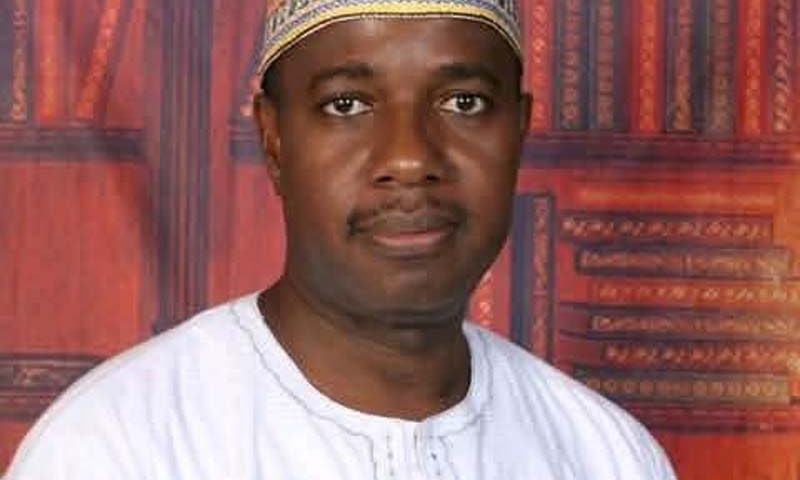President Muhammadu Buhari’s strict statist policies have boosted Nigeria’s domestic food production and reduced imports, but at what cost to ordinary people?
What have two terms of ’Buharinomics’ brought to Nigeria? The government of Buhari, in office since 2015, has based much of its economic policy on state interventions in the market; be it in rice production, infrastructure or access to foreign exchange. It has delivered mixed results.
The government says its plan for national self-sufficiency in rice production – closing the country’s land borders to fight smuggling and blocking US dollar access for its import – is yielding positive results. In January, Buhari unveiled a pyramid made up of 1.2 million bags of rice in the country’s capital, Abuja, declaring that Nigeria had doubled its paddy rice production to 9m tonnes per annum since 2015.
Filling the gaps
Central Bank of Nigeria (CBN) governor Godwin Emefiele declared that Nigeria’s rice-milling capacity had increased to 3m tonnes, up from the 350,000 tonnes before the government launched a support scheme for farmers – the Anchor Borrowers’ Programme.
However, the price of a 50kg bag of rice has tripled, from about N9,000 ($21) in 2015 to about N33,000 in May 2022. Inefficient and expensive local rice-processing methods and the slower inflow of foreign alternatives due to the border closures are responsible.
According to data compiled by the US department of agriculture, Nigeria produced 5m tonnes of rice in 2021. However, national consumption is more than 7m tonnes per year.
The Senate agriculture committee has expressed concerns that national demand continues to be met through smuggling. “With the help of local informants and compromised customs officials, importers have found a way around the border closure,” says Aisha Oduntan, a resident of the Ipokia community that borders the Benin Republic, which is a major rice gateway to Nigeria. “They still bring in rice, but this time they sell at higher prices to make insane profits because demand is guaranteed, and supply is not as high as before and they pay zero taxes to the government.”
Like rice, many other commodities have been directly or indirectly banned from import. In June 2015, the CBN revealed that it had ended foreign-exchange allocation to some 41 items, such as cement, textiles, furniture, poultry, chicken eggs and turkey.
The Buhari government has also focused on big infrastructure projects, like the Lagos-Ibadan railway, dams and highways. The administration launched the reconstruction of the Port Harcourt-Maiduguri rail line in 2021 and signed a deal with German firm Siemens in 2018 to boost national electricity production to 25GW in the long term.
Supporters of Buhari’s statist policies say he is trying to balance out the inequalities of global trade, which pitches developing countries against developed ones. “The truth is that Nigeria is a part of the world economy and cannot shut itself off without doing significant damage to its economy and citizens,” says Feyi Fawehinmi, an accountant and public policy analyst.
“The government also lacks the state capacity to effectively police such bans, so the effect is often no more than to raise prices for everyone as smugglers need to pay more bribes to cross into Nigeria.” The border closure was particularly damaging because it was implemented in such a poor manner and backed up with ever-shifting justifications, he says.
“It was not only foodstuff prices and businesses that were affected by the closure,” says Ipokia resident Oduntan. “Oil and gas retail businesses were literally killed in the area because the government was convinced that the border towns facilitated illegal oil exports to Benin [Republic]. Since then, people have had to travel miles to get petrol. They [the government] have unknowingly created a flourishing illegal market because now oil bunkering [is the] alternative.”
Command and control
Ese Osamwonyi, an analyst at Lagos-based SBM Intelligence think tank, says Buhari’s policies have had a negative impact on businesses and the economy as a whole. “The Q4 2019 border closure […] is inconsistent with our multilateral commitments and resulted in a huge economic shock that was further deepened by the 2020 Covid-19 pandemic,” she says.
Some analysts, such as Oby Ezekwesili, a former vice-president of the World Bank, says Buhari has retained variants of the ‘command and control’ economic ideas of his first period in his ‘second coming’. When Buhari was military head of state, from 1983 to 1985, he halved the country’s import bill by rationing access to foreign exchange and tried to enforce price controls. Today, the CBN wholeheartedly agrees with his decision to ration foreign exchange, aggressively managing demand while not doing enough to boost supply.
Fawehinmi, the accountant and analyst, says: “One of the biggest consequences is in the way [statism] has shifted what it is acceptable for the government to intervene in. Nigeria was hardly a market economy free of government intervention before Buhari arrived, but some useful progress had been made in things like financial markets and exchange rates.”
Fawehinmi adds that because of Nigeria’s very young population, Buhari’s eight years as president is long enough to influence the economic viewpoints of millions of people who came of age during his administration: “They might think that it’s normal for the president to have a strong opinion on what the currency’s exchange rate should be and for the government to determine who has access to it.”
Buhari rode on the massive support of the talakawas (ordinary people) to become president in 2015. He argues that his policies, from foreign exchange management to border closure, are geared towards protecting citizens. However, the cost of living for the country’s most vulnerable is on the rise, as inflation spikes globally.
For Fawehinmi, President Buhari will have the economic legacy of running a government that is “everywhere but really nowhere” and whose main power is “to block things from happening [rather than] to enable things it wants”. Even so, he hopes that Buhari’s tenure has demystified many popular economic ideas and that Nigerians will now be open to listening to other arguments and not let bad ideas linger for too long.






